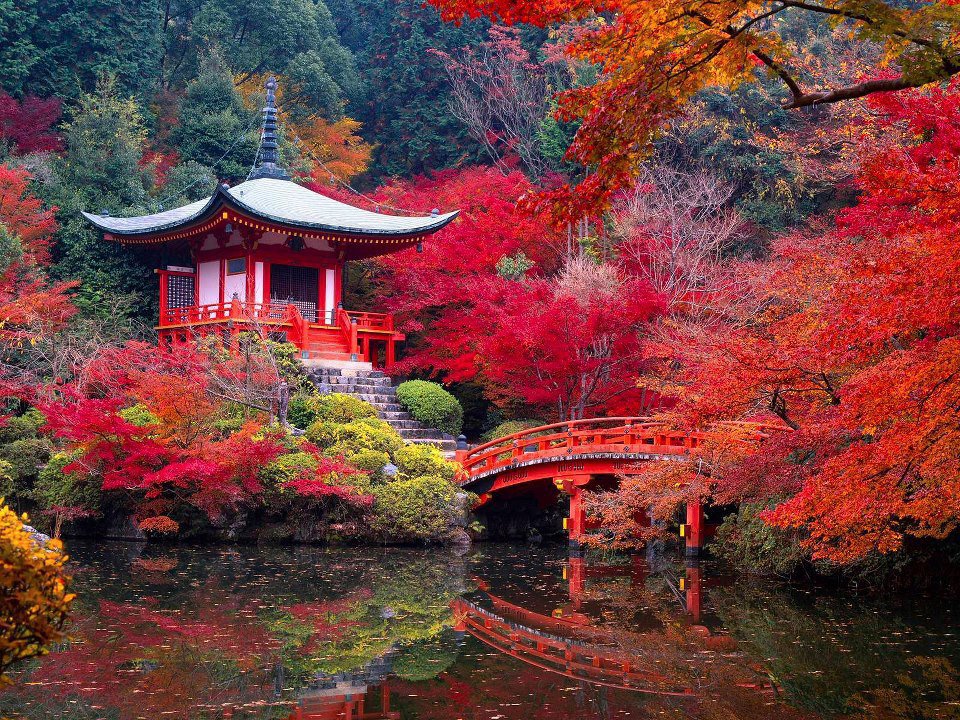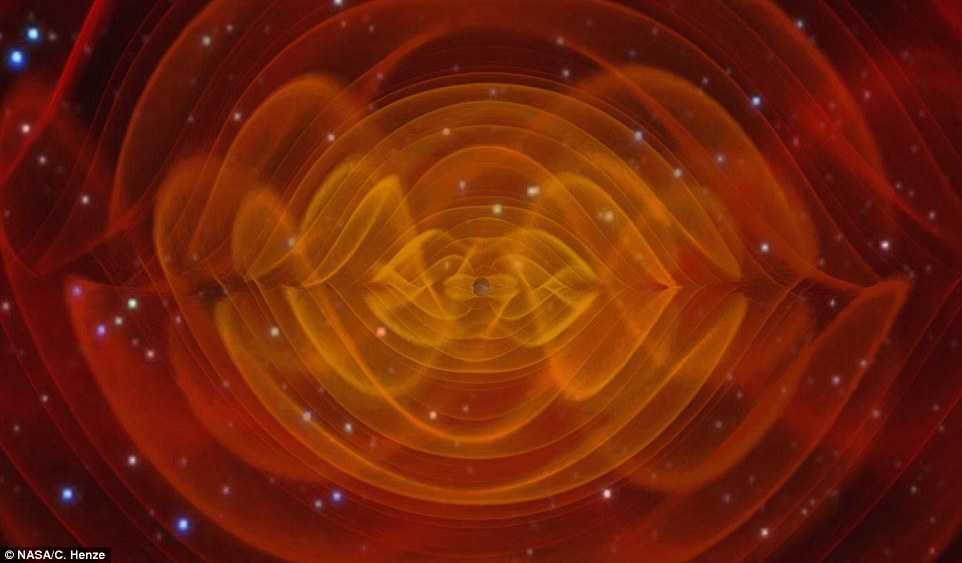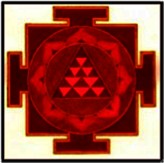

Vimshottari Dasha - Rashi - Gochara - Bhava - Graha - Ratna - Nakshatra - Amsha - Karaka - Varga - Bala
Kuja occupies 9th-from-Chandra
- Traditional Jyotishavidya Sacred Jewels Ratna for Mangala
- Moving Mangala reaches maturity - graha pakvata = age 28
- [energizing-identifying lagnesha for Mesha indriya-lagna]
- [energizing-identifying lagnesha for Vṛścika indriya-lagna]
- Kuja Dosha
- BPHS Mangala Mahadasha
- BP Lama commentary Kuja-Mahadasha
- [Mangala in bhava-1] [svabhava]
- [Mangala in bhava-2]
- [Mangala in bhava-3]
- [Mangala in bhava-4]
- [Mangala in bhava-5]
- [Mangala in bhava-6]
- [Mangala in bhava-7]
- [Mangala in bhava-8] [svabhava]
- [Mangala in bhava-9]
- [Mangala in bhava-10] [dikbala]
- [Mangala in bhava-11]
- [Mangala in bhava-12]
- [Mangala-Mesha] [mūlatrikoṇa if between 0-18 deg] [svakshetra]
- [Mangala-Urisha]
- [Mangala-Mithuna]
- [Mangala-Karkata] [nīcha]
- [Mangala-Singha]
- [Mangala-Kanya]
- [Mangala-Tula]
- [Mangala-Vṛścika] [svakshetra]
- [Mangala-Dhanus]
- [Mangala-Maraka] [uchcha]
- [Mangala-Kumbha]
- [Mangala-Meena]
OM kram krim kraum sah bhaumaya namah
मङ्गल maṅgala
Professor Mangala
कुज ku-ja = born from Earth
अङ्गारक aṅgāraka = charcoal, coal
असृग्ग्रह asṛg-graha [asrug-graha] = blood-planet
भूमिपुत्र bhūmi-putra = offspring of Earth
क्षमातनय kṣamā-tanaya = offspring of the Enduring Earth
क्रूरदृश् krūra-dṛś = cruel-eyed [said of both Shani and Kuja]
लोहितार्चिस् lohita-ārcis = red-rayed
रक्ताङ्ग rakta-aṅga = red-limbed, red-bodied
[karako bhavo nashto]
occupies
धर्म dharma = right, naature, character
पितृ pitṛ pittrü = father, forefather
चित्त citta chitta = thought, intelligence
गुरु guru = growth
आचार्य ācārya = teacher
Mars Ars Ares Aries Arian Ori Orion
Simud- Bahram
Gugulanna- Nergal
Heru-deshet
Tiw - Tyr = Tiwesdæg - Tuesday
occupies
the ninth house
iter
Red-Tailed Hawk
EXAMPLE
[Mangala-Mesha] [svakshetra]
[mulatrikona if within 0-18 deg]
[Yogakaraka homebound-anchoring bandesha for Simha indriya-lagna] [Yogakaraka doctrinal-believing dharmesha for Simha indriya-lagna]
[karako bhavo nashto for father, patrons, chieftains, indoctrinators]
[dynamic humanistic innovator] [competitive broad worldview] [father-figure may be professor-preacher-indoctrinator]
-
POTUS-15 Oregon Treaty 1791-1868 James Buchanan [champion-challenger Aśvini-1] [mūlatrikoṇa] [vargottamsha] + [Kuja-yuti-Budha] + [uchcha-Surya-yuti-Ketu]
-
Russ 1870-1924 Bolshevik Vladimir Ulyanov Lenin [pioneering-innovative Aśvini-1] [mūlatrikoṇa] + [Aśvini-Kuja-yuti-Surya-Aśvini-uchcha] [Aśvini-Kuja-yuti-Budha-Bharani]
-
POTUS-38 Time to Heal 1913-2006 Gerald R. Ford [ideological-principled Kṛttikā-1]
-
POTUS-35 Profiles in Courage 1917-1963 John F. Kennedy [secretive-erupting Bharani-4] [Budha-yuti-Mangala]
-
Apple Computer 1955-2011 Steve Jobs [financial-oratical Aśvini-2] [mūlatrikoṇa] [Yogakaraka]
***
-
POTUS-pair-22-24 Needlework 1864-1947 Frances Folsom Cleveland [political-dramatizing Bharani-1] [mūlatrikoṇa] [Mangala-yuti-Ketu]
-
Sans attendre 1968- chanteuse compositrice Celine Dion [sound-value Aśvini-2] [mūlatrikoṇa] [Somana-yuti-Kuja]
-
Devdas 1973- drama-fashion Aishwarya Rai [financial-oratical Aśvini-2] [mūlatrikoṇa]
[karako bhavo nashto for father, patrons, chieftains, indoctrinators]
[busy-messaging sahaja-pati for Kanya indriya-lagna] [mysterious-revealing randhresha for Kanya indriya-lagna]
[energized ideological wealth acquisition] [values-driven dominant celebrity] [forceful conquest of stored assets] [vigorously promotes heritage beliefs]
[musical-artistic-financial father may be patron, patriarch, pushy believer, doctrinal promoter, pro-active preacher]
energetic publication
- R-E-S-P-E-C-T 1942-2018 Queen of Soul Aretha Franklin [communicative-mercantile Rohiṇī-3]+ [Rohini-Guru-yuti-Mangala-Rohiṇī] [Rohini-Guru-yuti-Shani-Krittika] [9, father, faith]
- UK-Queen 1947- Camilla Rosemary Shand [managing-explaining Rohiṇī-3] [Rohini-Kuja-yuti-Rahu-Krittika-uchcha]
***
-
Open Society 1930- capitalist George Soros [calculating-strategic Mriga-2] [Atmakaraka]
-
Golf 1975- champion Tiger Woods [theatrical-demonstrating Mriga-1] [Atmakaraka] [Kuja-9 parivartamsha Shukra-3 = mutual drishti]
[curating-collecting dhana-pati for Tulā indriya-lagna] [bargaining-balancing jaya-pati for Tulā indriya-lagna]
[karako bhavo nashto for father, patrons, chieftains, indoctrinators]
check Budha and Budha drishti for the source of Kuja's dialoging, mercantile discourse
[dynamic communicative doctrinal fighter-father]
[energizing-identifying lagnesha co-ruler of Vṛścika indriya- lagna] [inimical-medicating rogesha for Vṛścika indriya- lagna]
[karako bhavo nashto for father, patrons, chieftains, indoctrinators]
check Chandra and Chandra drishti for the source of Kuja's emotionally sensitive manipulation
[dynamic preaching adversarial fighter-father]
-
POTUS-05 Monroe Doctrine 1758-1831 James Monroe [profitable-distributive Aśleṣa-3] + [nīcha-Kuja-yuti-Rahu]
-
POTUS-09 Tecumseh 1773-1841 William Henry Harrison [political-displaying Pushya-1]
-
Nepal 1945-2001 The Last Hindu King Birendra Bir Bikram Shah Dev [entitled-ceremonial Pushya-1]
-
USA-Sen-Tenn VPOTUS Climate Change 1948- Al Gore [systematic-interlinking Aśleṣa-3] [Atmakaraka] [Naga-Mangala-yuti-Shani-Naga]
[karako bhavo nashto for father, patrons, chieftains, indoctrinators]
[witty-creative vidya-pati for Dhanus - Haya indriya-lagna] [contemplative-retreating vyaya-pati for Dhanus - Haya indriya-lagna]
check Surya and Surya drishti for the source of Kuja's sparkling, self-central showmanship
dynamic-and-difficult political self-focused fighter-father drive toward doctrine, pushes forward toward higher understanding. Father often early demise.
-
Total Surrender 1910-1997 Mother Teresa of Kolkata [negotiating-adjusting Pūrvaphalgunī-3] [Kuja-yuti-Surya]
***
-
Grateful Dead 1942-1995 guitarist Jerry Garcia [ensemble-managing Magha-3] [Kuja-yuti-Rahu]
[homebound-anchoring bandesha for Makara - Draco indriya-lagna] [gainful-friendly labha-pati for Makara - Draco indriya-lagna]
[karako bhavo nashto for father, patrons, chieftains, indoctrinators]
check Budha and Budha drishti for the source of Kuja's logical, analytical critiques
[Dhanayoga ruler of 11 occupies 11th-from-11]
[profits from pursuit of logical beliefs]
dynamic patronage and pursuit of principled belief
-
Miracle Roses 1207-1231 St. Elizabeth of Hungary [traditional-heritage Hasta-2]
-
Liberia-Pres 1938- Ellen Johnson Sirleaf [visionary-charitable Uttaraphalgunī-4]
-
Harry Potter 1965- magical-fiction J.K. Rowling [dramatizing-showcasing Chitra-1] [Somana-yuti-Kuja]
***
-
India-PM 1889-1964 Toward Freedom Jawaharlal Nehru [fantasizing-conceptual Uttaraphalgunī-4]
-
CNN buffalo lands 1938- Ted Turner [land-owning Hasta-4] [Kuja-9 parivartamsha Budha-11]
[karako bhavo nashto for father, patrons, chieftains, indoctrinators]
[collaborative-communicative sahaja-pati for Kumbha indriya-lagna] [dutiful-executive karmesha for Kumbha indriya-lagna]
check Shukra and Shukra drishti for the source of Kuja's bargaining, arranging brokerage
-
Origin of Species 1809-1892 naturalist Charles Darwin [intervention-evolutionary Chitra-4] [Chitra-Kuja-yuti-Rahu-Svati] [9, theory]
[Mangala-Vṛścika] [svakshetra]
[collecting-preserving dhanesha for Meena - Antya indriya-lagna] [doctrinal-guiding dharmesha for Meena - Antya indriya-lagna]
[karako bhavo nashto for father, patrons, chieftains, indoctrinators]
-
POTUS-01 American Revolution 1732-1799 George Washington [defensive-stewarding Viśākha-4]
[karako bhavo nashto for patron, chieftain, father, indoctrinator]
[energizing-identifying lagnesha for Mesha indriya-lagna] [mysterious-revealing randhresha for Mesha indriya-lagna]
-
POTUS-pair-13 Libraries 1798-1853 Abigail Powers Fillmore [political-dramatizing Purvashadha-1] [Kuja-9 parivartamsha Guru-1]
***
-
POTUS-34 Interstate Highways 1890-1969 Dwight D. Eisenhower [bargaining-contractual Pūrvāṣāḍhā-3]
-
POTUS-40 American Life 1911-2004 Ronald Reagan [land-owning, customary Mūla-4] [navamsha Kuja-Karkata-nicha] [Budha-yuti-Mangala]
-
General Electric 1935-2020 CEO Jack Welch [exploring-disguising Pūrvāṣāḍhā-4] [Atmakaraka] [Apah-Kuja-yuti-Rahu=Apah] [Mangala-9 parivartamsha Guru-8]
-
Rus-Pres 1952- First Person Vladimir Putin [financial-evaluating Mūla-2] [Mūla-Kuja-9-parivartamsha Guru-1-Bharani]
[Mangala-Maraka-Draco] [uchcha]
[balancing-bargaining yuvati-pati for Urisha indriya-lagna] [contemplative-imagining vyaya-pati for Urisha indriya-lagna]
[karako bhavo nashto for patron, chieftain, father, indoctrinator]
check Shani and Shani drishti for the source of Kuja's hierarchical, class-conscious upward climbing
[inimical-medicating rogesha for Mithuna indriya-lagna] [friendly-gainful labha-pati for Mithuna indriya-lagna]
check Shani and Shani-drishti to see the restrictions governing Kuja's community-connected, economic forward-push
[karako bhavo nashto for patron, chieftain, father, indoctrinator]
[Dhanayoga ruler of 11 occupies 11th-from-11] [
profits from pursuit of proletarian understanding]
-
Seven Year Itch 1926-1962 Marilyn Monroe [media-messaging Purvabhadra-3] [Kuja-yuti-Guru]
***
-
Ring of Fire 1932-2003 rockabilly Johnny Cash [inspirational-ideological Varuna-1] + [Budha-yuti-Surya]
[karako bhavo nashto for patron, chieftain, father, indoctrinator]
[Yogakaraka witty-speculative vidya-pati for Karkata indriya-lagna] [Yogakaraka dutiful-executive karmesha for Karkata indriya-lagna]
[dymamic forward promotion of principled belief] [vigorously active in global affairs] [imaginative entitled children] [visionary father may be ideologically warlike]
[ruler of 5 in 5th-from-5 splendid for politics]
-
POTUS-pair-05 La belle Americaine 1768-1830 Elizabeth Kortright Monroe [optimistic-believing Revatī-1]
-
UK Queen 1819-1901 Empress Victoria-1 [profitable-systematic Revatī-3] [Atmakaraka] + [Shani-yuti-Rahu]
-
Israel-PM 1898-1978 Our Strength Golda Meir [deal-making Andromeda-3]
-
Mighty Heart 1975- drama-activist Angelina Jolie [preaching-ideological Revatī-1] + [Chandra-yuti-Guru]
natural regulator Guru feels Friendly toward Kuja
-
the glance of Mangala-9 injects: bhava-3, bhava-4, bhava-12
-
stepfather = either 8th-from-9th bhava-4 *or * 8th-from-Surya
Actions (yang Mangala) originate in the world-travel and philosophical instincts (9)
Drishti into bhava-3 stimulates business, communications, publishing
-
Open Society 1930- capitalist George Soros [calculating-strategic Mriga-2] [Atmakaraka] = attending conferences, writing, and public speaking = into his 90's
Senex-complex * competition to dominate father-figures
contentiousness in the relationship to the father and father-figures
-
POTUS-38 Time to Heal 1913-2006 Gerald R. Ford [originating-competitive Kṛttikā-1] Bio-father was violently abusive. Mom left the attacking dad-1 when Gerald was an infant. Although the bio-dad briefly re-appeared 18 years later, GRF walked away. Bonus-dad raised GRF and dad-2 did the lifetime parenting.
Kuja-9 indicates some injury (including self-injury) to the father or the presence of aggressive characteristics in the father's behavior. Father is often short-lived.
Kuja-9 drishti in bhava-4 suggests that if as a result of father's demise, astepfather occurs (8th-from-9th) that stepfather may also be aggressive.
Mangala-9 may indicate that the father is a military officer, dynamic user of explosives or weapons, acompetitive sportsman, an innovative engineer, or vigorous activist.
Mangala-9 often signifies attitudinal challenges in the life of the father-figure, involving aggressive drive toward celebrity entitlements, self-righteous indignation, self-promoting beliefs, overly energetic preaching, bullying, or oppositional-defiant psychological issues.
-
the father of Total Surrender 1910-1997 Mother Teresa of Kolkata [Kuja-yuti-Surya] was a corrupt politician who was killed in violent revenge
FATHER, indoctrinators, military liturgies
Kuja in Bhava-9, svabhava of Kuja's friend Shri Guru.
Father is often restless, preachy, self-righteous, physically energetic, and mechanically inclined, Yet dad has a dominating character. Dad may be a priest and also may do battle with priests.
Often a mark of an activist father who pushes his way into situations.
Guru-figures represented by Mangala-9 may have a developed understanding [9] of the physical embodiment and how to deploy the body in spiritual practice. The sporting arena may become a sort of a temple wherein Mangala may exhibit His courage and competitive prowess.
Military cults with sacrificial liturgies involving blood and fire, such as the Roman era cult of Mithra.
Angaraka svakshetra or uttama may produce innovation in religious indoctrination.
Aggressive drive to turn over the money-changers' tables in the temple, eradicate non-scriptural practices, or dominate the competitor paradigm of beliefr.
The pronounced forcefulness of Mangala may impact Father
Kuja-9 travels widely yet Competitive Kuja is moving so dynamicly through world that wisdom may be less important than material accomplishment in the experience of Winning.
Kuja-9 a warrior's drive understanding of religion, as a contest which one must win.
He may be a forcefully effective paramilitary missionary, conquering new territory in the material world or in the realm of people's beliefs.
-
Kuja-9 can be an advance guard of the higher truths, energetically proselytizing the wisdom culture. Behind Mangala the Pioneer may come the slower believers who develop the practical details of the faith.
-
Favors happiness through priesthoods which hold masculine sexuality and competitive conquest in the highest regard.
Targeted, outgoing vigor of Mangala-9 penetrates
-
Vikrama bhava = discovering secret sources of regeneration and rebirth
-
Bandhu bhava = upsets or physical conflict in the childhood home; competition for shelter.
-
Vyaya bhava = provoking and evoking spiritual guidance from the astral realm
-
Strength of Mangala Drishti from Mangala-bhava-9
Innovation in Dharma Worldview Doctrine Theory
Father
One's relationship to the father has a combative or competitive urgency.
May signal a very active, dynamic, aggressive father who fights for his own beliefs about himself. Father believes himself to be an innovator, anoble one, ahighly independent agent who must fight to be right in matters of doctrine.
-
POTUS-35 Profiles in Courage 1917-1963 John F. Kennedy [secretive-erupting Bharani-4] [Budha-yuti-Mangala] JFK's dad was a political kingmaker, known to be dominating and self-righteous. His children were told what to do, and they did as they were commanded -- not only as youngsters, but also as adults.
-
USA-Sen-Tenn VPOTUS Climate Change 1948- Al Gore [systematic-interlinking Aśleṣa-3] [Atmakaraka] [Naga-Mangala-yuti-Shani-Naga]
Often, the Father physically separates from the child. Not infrequently Mangala-9 signals a premature death for the father * although grieved decease of father must be confirmed by additional indicators.
-
POTUS-01 American Revolution 1732-1799 George Washington GW's dad died suddenly when George was 15, preventing young George's enrolment in British military school and ending GW's expected career as an officer.
-
Sherlock Holmes 1859-1930 occultist Arthur Conan Doyle [calculating-strategic Mriga-2] [Atmakaraka] [Surya-yuti-Kuja] [Shukra-8 parivartamsha Mangala-9] C-D's father enjoyed aristocratic bloodlines and recognized artistic talent [Mangala-Urisha] . However, his father's complex of mental-and-physical illnesses, including epilepsy compounded by alcoholism, caused a series of tremendous upheavals in the family home. Mother-and-children lived in frequent terror until the dangerous dad was placed in asylum.
-
CNN buffalo lands 1938- Ted Turner [Kuja-9 parivartamsha Budha-11]. Ted's father committed suicide in March-1963, ted's age 25.
-
Grateful Dead 1942-1995 guitarist Jerry Garcia [ensemble-managing Magha-3] [Kuja-yuti-Rahu] dad drowned in a river during a family holiday, when little Jerry was six years old. His dad had been a singer and performing musician, and a tavern owner. [Mangala-Singha] JG's maternal grandfather served as father-figure during his school years, age 6-11. Mom remarried later, providing a step-father. 8th-from-Surya-8 = bhava-3, abusinessman.
***
-
Total Surrender 1910-1997 Mother Teresa of Kolkata [negotiating-adjusting Pūrvaphalgunī-3] [Kuja-yuti-Surya] MT's dad was an Albanian political boss [Mangala-Singha] He was said to have been violent and cruel. MT left home at age 17, and never returned home again.
-
Seven Year Itch 1926-1962 Marilyn Monroe [media-messaging Purvabhadra-3] [Kuja-yuti-Guru] MM father was persona incognita. Apparently, he had a different wife at the time of MM birth, and yet another wife after her birth. Neither wife was MM mother. Bio-dad argued with his paramour, her unstable mother, then hid MM existence from his subsequent wife. Due to Guru, mM had numerous foster-fathers and father-figures. Rogesha Kuja signals that all of them were hostile and most were sexually abusive.
Father may have a military career or he is prone toward dynamic engineering thrust, aggressive pursuit, or violent actions [Mangala] .
Father may be a type of a bully.
Mangala-9 casts drishti in bhava-4 Therefore, the emotional safety of the childhood home may be threatened by paternal violence whether physical or verbal.
-
Total Surrender 1910-1997 Mother Teresa of Kolkata [negotiating-adjusting Pūrvaphalgunī-3] [Kuja-yuti-Surya] Dad died when little MT was eight years old, in circumstances of politically charged violence [Mangala-9-Simha politics]
If the competition is balanced with discipline from favorable drishti, the father may be a rigorous coach.
-
In Mesha, Vṛścika = Father may be an engineer, military officer, or athlete. Father is a forceful and usually quite sexualized person.
Karaka for early death or injury to the father.
Both parents experience stress during the native 's childhood, because from dharma bhava Kuja also aspects Bhava -4 of the mother/family home. Conflict between native's parents.
Conflict with guru, father; impatient with university studies, and may be aggressive toward preachers, professors, or priests.
Self-promoting instincts may override the moral principles
Restless in the temple. Dynamic creative drive toward development of religion (9), imagination (12), media publication (3) and patriotic ownership of lands and vehicles (4) -- yet, must have the teachings individualized to suit oneself.
-
Not easy to find his place in the paternal culture.
-
If exalted, father may be very successful in business and one may be a professor or other icon of success in the secular priesthood e.g. The universities, specializing in conflict and competition.
Powerful imagination, frequent foreign-travel (12) and Bhava -moves (4) esp. during periods of Mars-Ars.
Dematerialization
Karaka for death in a holy place or ceremonial setting, or while doing the bidding of one's father.
Siblings
-
Creates the drishti upon 3 which nearly always generates the birth or acquisition of a younger sibling (full, half or step.)

Daigo-ji Temple in Kyoto, Japan
Career outcomes
during Vimshottari Dasha periods of a graha located in bhava-9
There are many beneficial effects from graha located in dharmasthāna-9 including expansion of humanistic perspective, global awareness, and contact with wisdom-figures.
Nevertheless, the 10th-from-9 = bhava-6 indicating disharmony and ailment.
As a result, there may be a temporary experience of conflict in leadership roles, ailments related to job performance, unfair agreements, loss of contract, dissolution of equity, accusations, pollution, or other 6-related phenomena according to the rashi of 6 and any graha residing in 6.
If the karmesha occupies rogasthāna-6, the professional life remains robust, but the career duties tend to emphasize injury, indebtedness, exploitation, or toxicity, inter alia.
Careers in labor relations, social work, medicine, and other ministries of service are usually enhanced by the 6th-angle because these professions are already dedicated to service of the hurting. Their collegial relationships may temporarily suffer somewhat but the overall mission is stable.
100% 4th drishti to Vyaya bhava is productive in the svabhava of friendly Guru.
-
Stimulates the imagination especially regarding"bed pleasures ".
-
Native's guidance capabilities energize and are energized by psychic intelligence and a vivid artistic imagination.
-
Excellent for pastoral counselors, priests, psychiatrists.
25% 7th drishti to Sahaja bhava is productive in the svabhava of neutral Budha.
-
Helps small-group communications.
-
Excellent for think-tank type teamwork, especially regarding avant-garde metaphysical ideas. Contributes energy to the self-made financial wealth of bhava-3.
-
Guarantees presence of a younger sibling (full, half, or step).
100% 8th drishti to Bandhu bhava = interrupting the sheltered calm in the svabhava of placid Chandra.
-
Self-initiated behavior and some arguing or conflict between the parents or caretakers in the childhood home are inherent in Kuja's 8th aspect
-
as are frequent Bhava -moves and emotional instability that accompanies unrootedness.
BPHS Chap 43: 7-8
" If Mangala is in a trikona,
- advancement of fortune, recognition by the government,
- gain of clothes and ornaments,
- success in all efforts,
- increase in agricultural production
- and prosperity at home and profits in business
will be the favourable effects of the Antara Dasha of Mangala in the Dasha of Chandra. "

Wave pattern produced by two colliding black holes, each approximately 35 times the size of the Earthen Sun (NASA)

[How Readings Work] [Sample Sacred Jewels Ratna Recommendationn] [Seva]
 file update:
21-Apr-2024
file update:
21-Apr-2024
[Copyright © 1994-2024 by Barbara Pijan Lama] [Contact] [How to Request a Jyotishavidya Reading]
Barbara Pijan Lama Jyotishavidya Vedic Astrology Surya Sun Chandra Moon Mangala Mars Budha Mercury Guru Jupiter Shukra Venus Shani Saturn Rahu Ketu Graha Planets Dasha Timeline Calendar Nakshatra Navamsha Marriage Children Treasury Career Spiritual Wisdom Cycles of re-Death and re-Birth
The information on barbarapijan.com , including all readings and reports, is provided for educational purposes only. Wishing you every happiness and continuing success in studies!
